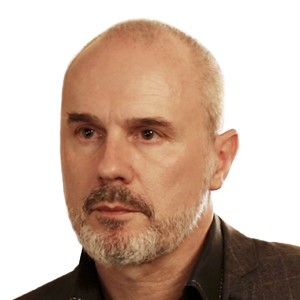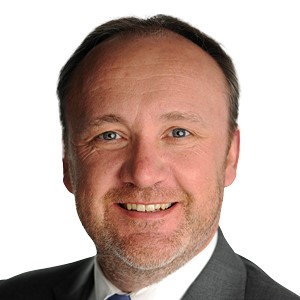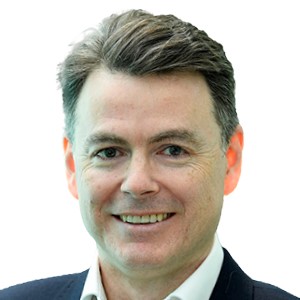The economic scrunch is forcing senior business leaders to make tough decisions on cost structures. While the short-term pressures are undeniable, it’s up to Boards to hold firm on the sustainability agenda and ensure that targets are set out and embedded into the core of the business and how it operates.
At Criticaleye’s
Global Sustainability Forum, which was held in association with
Accenture, senior leaders came together to consider the best ways to build a greener future at a time when there is an increasing focus on productivity and performance.
Toby Siddall, Managing Director and Sustainability Lead for UK & Ireland at Accenture, summarised how many businesses have gone into firefighting mode as a result of ongoing supply-chain disruption, inflation and the cost-of-living crisis. “We have an emergency around sustainability, but, when families can't keep the lights on, and governments are struggling with this year’s crisis, immediate challenges tend to trump longer-term ones,” he said.
However, he urged Board-level directors to regain focus on sustainability and described what it will require to succeed in this space: “More than ever, we need to make sure we are still collaborating and innovating now to change our future.”
Rita Clifton, Deputy Chair of John Lewis Partnership, seconded this approach. “Sustainability is the ultimate, hard, existential issue. If we don't get this sorted out, there won't be any other issues left to worry about,” she said.
She also illustrated how this topic has shifted the role of the non-executive director in recent years: “What’s changed is we've now put hard measures around it, and it's become a boardroom concern and part of our fiduciary duties.”
Unfortunately, many organisations are still struggling on what sustainability means for their day-to-day operating models and their stakeholders. In a poll taken at the Forum, 21 percent said that they are yet to even create a strategy for achieving Net Zero, while 54 percent admitted to only executing on their set targets to some extent.
It is undoubtedly a challenging business environment and trade-offs are inevitable, but stakeholders are still going to ask questions on a company’s position in relation to environmental and social issues.
Richard Gillies, Chief Operating Officer at Simplyhealth, commented: “One of the biggest drivers a Board can have on sustainability is direction-setting and ensuring that they embed the governance to drive that in the organisation.
“It means putting governance structures in place to ensure that the business isn’t relying on passion, motivation or skillsets of any single individual. You're putting in place a structure where checks and balances, control frameworks and the necessary policies are enshrined in the business architecture.”
It’s a case of stepping back and making an objective assessment of where the business is at and where it needs to be. Richard explained: “If you've got an organisation that is very forward-looking and has capabilities within the executive team [to push] that agenda, then you want your non-execs to be supportive of that. If you find yourself on a Board in a business at the rear of the pack, then you must look at some of the basics in the organisation – around the capabilities it has on the Board and among the executives – as well as the direction the business should take.”
Charlie Wagstaff, Managing Director at Criticaleye, noted that there needs to be a shift in mindset. “Leaders often think of the business strategy and the sustainability strategy as two separate entities, and this causes a lack of unified purpose, direction and alignment on Boards,” he said.
“Climate-based targets and Net-Zero strategies cannot be an afterthought, bottled up and tackled at a later date – the time to act is now. Boards can be catalysts for growth by getting clarity on key improvement areas and encourage and inspire people to act on them together.”
Asking sharper questions
An area of debate during the Forum was the “knowledge gap” on Boards around sustainability. What are the questions NEDs should be asking? How much technical expertise can they be expected to have, given the pace of innovation across different sectors and geographies?
Orna NiChionna, Senior Independent Director at Burberry, urged Boards to develop a more comprehensive understanding of their climate impact – from carbon footprint and water usage to biodiversity – as that will better equip them to fulfil their fiduciary responsibilities. “The knowledge level of Board members varies enormously,” she said. “Some people panic a little and think they have to get the equivalent of a PhD in biochemistry, geophysics and agriculture to really understand all these issues properly.”
She noted that there are practical ways for Chairs and NEDs with various levels of understanding to gain insights. “What we've done at Burberry is have some reminder ‘teach-ins’ about the big picture and the important levers [for change], but leave it to our Chief Sustainability Officer to come up with the plans,” she said. “We then have one or two people on the Board who are much more familiar with the issues [… and] can ask sharper or more specific questions.
“They must engage frequently with the Chief Sustainability Officer in the boardroom, asking: ‘Can we do more and faster?’ and: ‘What are the costs and trade-offs of doing so?’. We don't need all of the Board to be experts, [but we do] need them to show concern and that this really matters to them.”
Rita, who is also a Board Mentor at Criticaleye, agreed that knowledge gaps shouldn’t deter NEDs from speaking up. In fact, simple curiosity in leadership can breed positive outcomes. “You've got a human duty to ask some of the more challenging questions. It's up to Board directors themselves to participate and show a personal interest. Business needs to be, and come across as, more human, because that is the way to build longer-term relationships with all of your stakeholders,” she said.
Achievable objectives, governance structures and better-informed boardroom debates are all key to improving the environmental and social landscape in which people both live and work. Businesses must start acting on this now, or else it will be the planet, not their stakeholders, that will force their hand.
Criticaleye’s next
CEO Retreat will be held under the banner of People, Purpose & Planet. To register your interest in this event, please contact your Relationship Manager or the
Events team.



